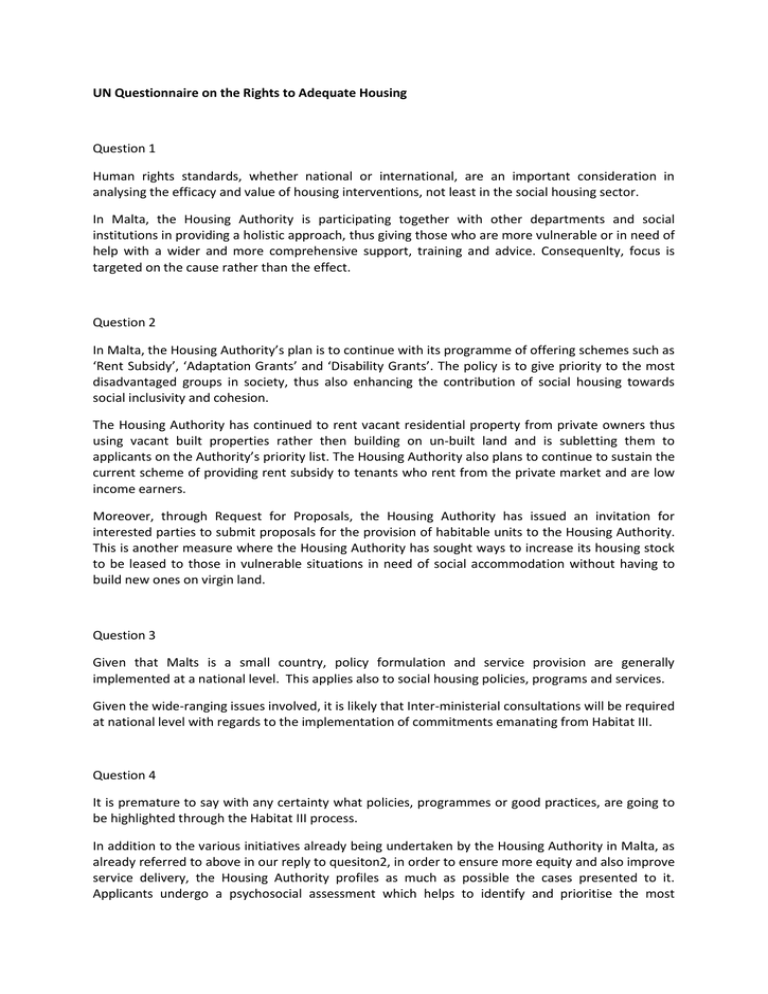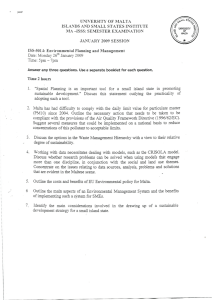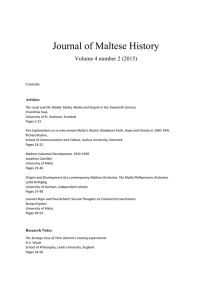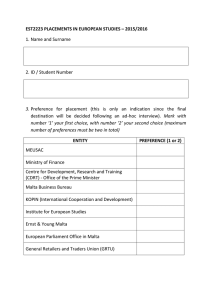UN Questionnaire on the Rights to Adequate Housing Question 1
advertisement

UN Questionnaire on the Rights to Adequate Housing Question 1 Human rights standards, whether national or international, are an important consideration in analysing the efficacy and value of housing interventions, not least in the social housing sector. In Malta, the Housing Authority is participating together with other departments and social institutions in providing a holistic approach, thus giving those who are more vulnerable or in need of help with a wider and more comprehensive support, training and advice. Consequenlty, focus is targeted on the cause rather than the effect. Question 2 In Malta, the Housing Authority’s plan is to continue with its programme of offering schemes such as ‘Rent Subsidy’, ‘Adaptation Grants’ and ‘Disability Grants’. The policy is to give priority to the most disadvantaged groups in society, thus also enhancing the contribution of social housing towards social inclusivity and cohesion. The Housing Authority has continued to rent vacant residential property from private owners thus using vacant built properties rather then building on un-built land and is subletting them to applicants on the Authority’s priority list. The Housing Authority also plans to continue to sustain the current scheme of providing rent subsidy to tenants who rent from the private market and are low income earners. Moreover, through Request for Proposals, the Housing Authority has issued an invitation for interested parties to submit proposals for the provision of habitable units to the Housing Authority. This is another measure where the Housing Authority has sought ways to increase its housing stock to be leased to those in vulnerable situations in need of social accommodation without having to build new ones on virgin land. Question 3 Given that Malts is a small country, policy formulation and service provision are generally implemented at a national level. This applies also to social housing policies, programs and services. Given the wide-ranging issues involved, it is likely that Inter-ministerial consultations will be required at national level with regards to the implementation of commitments emanating from Habitat III. Question 4 It is premature to say with any certainty what policies, programmes or good practices, are going to be highlighted through the Habitat III process. In addition to the various initiatives already being undertaken by the Housing Authority in Malta, as already referred to above in our reply to quesiton2, in order to ensure more equity and also improve service delivery, the Housing Authority profiles as much as possible the cases presented to it. Applicants undergo a psychosocial assessment which helps to identify and prioritise the most vulnerable applicants to qualify for social housing. This also helps to disqualify applicants who are not vulnerable. Question 5 The Housing Authority is determined to continue promoting home ownership as well as improve the housing conditions in Malta. The Housing Authority adopts a holistic approach through the provision of various schemes and initiatives targeting those who are most in need of its assistance. It committed itself to improving the quality of life, whilst pursuing a better future for Maltese communities. The number of units to be used for social housing is also planned to be increased through assistance from European Financial Institutions and EU funding. Thus, the Maltese Government through the efforts of the Housing Authority is committed to assuring that far more places are available for social housing while also investing in enhancing housing estates through renovation and refurbishments works. The above initiatives being taken in the social housing sector in Malta are seen as contributing towards the objectives set out in Habitat II while also paving the way for Habitat III compliance.




